Circuit Stickers
Circuit Stickers are peel-and-stick electronics for crafting circuits. Use them to add electronics to any sticker-friendly surface: paper, fabric, plastic, the sky's the limit!
Funding ended on Dec 31, 2013 at 03:59 PM PST.
Funding ended on Dec 31, 2013 at 03:59 PM PST.
Circuit Stickers are electronic stickers that you can use to build glowing, sensing, and interactive projects without any complicated equipment or programming skills. All you need is your imagination.
Building circuits with them is fun and easy — just stick them onto a surface like you would with a normal sticker, and build up a circuit by sticking several stickers together and adding a battery. They’re an approachable way to learn and create electronics through craft, whether you’re just starting out with circuits or creating complex interactive artworks.
Robot card: blushes when you press on its heart, with "Thank You!" spelled using circuitry
Every starter kit comes with the Circuit Sticker Sketchbook, a step-by-step tutorial guide that will get you crafting with electricity in no time!
Circuit stickers are light, paper-thin and flexible circuit boards cut into small, fun shapes with anisotropic conductive adhesive on the back. The adhesive sticks to most surfaces and can be used with virtually any conductive materials as “wiring”— such as conductive threads and paints or even wires and aluminum foil from your kitchen.
We provide a roll of copper tape as a starter because it is easy to use and sticks virtually to anything. It’s also very soft, conductive and solderable, so you can make the circuit as big as you want. If you run out of copper tape, you can get more at your local hardware store in the gardening section— it’s normally used to keep snails and slugs out of the garden!
You can re-stick Circuit Stickers a few times, just like regular stickers. We also provide extra anisotropic conductive adhesive to "re-sticker" old stickers. Advanced users can also solder to the stickers for more permanent works.
Circuit Stickers works with virtually any conductive material, including Bare Conductive paint and Circuit Scribe conductive ink pens.
Using these diverse materials, you can start putting electronics anywhere! Make interactive electronic murals for your ceilings, walls and windows. Create touch-sensitive plants that glow, or a light yourself up with conductive body paint. You can even create artwork with the circuitry itself!
No worries! We have been working with educators to create the Circuit Sticker Sketchbook, a guidebook that will walk you through making basic LED circuits, DIY paper switches and a pressure sensor. You can complete the circuits right on the pages of the book— like a coloring book except now you’re coloring with electronics. When you’re done, you will have an interactive sketchbook of functioning circuits!
Create circuits right inside the Circuit Sketchbook
We have also prepared several tutorial videos and how-to guides to help get you started at our education website, and you can ask questions at our community forum!
Here’s an example of a tutorial on how to complete the very first project in your Circuit Sticker Sketchbook:
And here is a sampling of step-by-step tutorials you can use to learn more about electronics and how to craft with it:
Introduction Tutorials
Introduction to Copper Tape learn the difference between conductive vs. non-conductive adhesive tapes and how to “draw” with copper tape
1. Simple Circuit Tutorial turn on one LED light
2. Parallel Circuit Tutorial turn on multiple LEDs with one battery
3. DIY Switch Tutorial make your circuits interactive with this paper switch
4. Blinking Slide Switch Tutorial create different blinking effects using this switch
5. Pressure Sensor Tutorial make your LEDs fade in and out using this DIY pressure sensor
Advanced
Effect Stickers Template makes your LEDs fade, blink, twinkle or pulse a heartbeat rhythm
Sound Sensor Template makes your circuits responsive to sound, tapping and wind
Light Sensor Template makes your circuits responsive to light
Trigger Sensor (Timer) Template use a touch sensor to trigger your lights on or off for several seconds
Attiny85 Microcontroller Template use the microcontroller sticker as an advanced touch sensor or reprogram with Arduino for custom functions
Paper Battery Holder Tutorial Use this paper battery envelope to add your battery to any surface without a binder clip!
Projects
Word Circuitry Use conductive ink pens to turn letters and words intro circuits
Sailboat Card use conductive ink pens to create a sky of twinkling stars when you swipe your finger across the card
Anyone who wants to start building interactive projects! We’ve run workshops all over the world and gotten very positive responses from designers, artists, engineers, kids, students, and teachers. Now we’re excited to bring them to you, and see what you can make with them!
Many have enjoyed creating with Circuit Stickers including the Girl Scouts, National Writing Project teachers, FOO and the Exploratorium Tinkering Studio.
We’ve designed Circuit Stickers to be as easy-to-use as possible, so you don’t need a background in electronics to get started—our interactive sketchbook will teach you the basics. Technically advanced users can program Circuit Stickers and even integrate traditional electronics to create more complex works. Circuit Stickers are also made the work well with a wide range of materials, so you can use whatever art and craft techniques that are most fun and familiar to you!
Circuit Stickers are made with lead-free materials, but make sure to keep these small parts away from small children—they’re not good to eat!
LED Stickers are simple LED lights available in white, red, yellow and blue. These come with every starter kit! Effects Stickers generate an effect to control your LEDs (or other output!). Current effects are blink, fade, twinkle, and heartbeat. Sensors Stickers include a light sensor, a microphone sensor for detecting sound, and a timer circuit that turns on your circuit for five seconds at a time. Touch sensor/Microcontroller Sticker comes set up to work as a touch sensor, but advanced users can program the onboard ATTiny85 microcontroller to do anything they want.
We’ve created a starter kit that contains everything you need to use Circuit Stickers: LED stickers, batteries, various conductive materials. You can also order more advanced stickers and additional LED stickers and sketchbooks.
The Circuit Stickers Starter Kit has everything you need to start building your own circuits.
You can order more than one offering by returning to this page and adding another offering to your cart.
Everything you need to get started with circuit stickers:
Four effects stickers so you can add blink, fade, twinkle and heartbeat effects to your projects!
Sensors to make your projects even more interactive:
*ISP interface breakout board for advanced users to reprogram the microcontroller
A set of 30 white LED stickers.
A set of 10 each red, yellow, and blue LED stickers.
A copy of the Circuit Sticker Sketchbook in English, perfect for teachers who want to share the Starter Kit with more than one student.
The Classroom Pack is a class pack for a class size of 30. With 90 circuit stickers and 90 feet of copper tape, educators can conduct several projects per student. Free project templates can be downloaded on www.chibitronics.com/learn. Batteries not included.
One roll of copper tape 5mm (0.2 inch) wide x 5m (16.4 foot) long. Limited quantity, available while supplies last.
One strip of Z-tape, 2" wide x 5" long.
Chibitronics is collaboration between bunnie and Jie Qi . Jie is a PhD student at the MIT Media Lab and her research is all about combining arts and crafts with electronics and programming. bunnie is the Director of Studio Kosagi; he is a hacker who designs and manufactures hardware.
We believe that anyone and everyone is capable of expressing themselves and telling their stories through building electronics, using skills and materials that they already know. Electronics don’t have to come in boxes and cases as rigid indecipherable green boards attached with screws. With Circuit Stickers, engineering a circuit feels like playing and crafting because it IS playing and crafting. Technology can be as varied as our own experiences. By helping everyone have a voice in its creation, we hope to enable a world of new technologies designed by everyone for their own unique (technical and artistic) needs.
Example paper electronics pages from Jie’s Electronic Popables book.
Chibitronics is an academic research project. Although the circuit stickers featured in this campaign have been produced in small volumes, they were produced using techniques suitable for mass production — we are "prototyping in production". If just one person backs this project, we’re still perfectly happy to build and ship a single unit, yet we have the process scalability to meet virtually any demand.
Therefore, the purpose of this campaign isn’t to raise funds to develop a product, or to start a company. Rather, we have already made and tested thousands of initial prototype stickers and want to know how many more to build so that you can also access our research as it develops and inform how to make Circuit Stickers an even better learning and creating experience.
Our ultimate goal is see if Circuit Stickers can inspire more people to learn electronics and start expressing in this new way, to see what cool projects you all come up with, and ultimately expand how we all think about technology!
The stickers will be manufactured by AQS, our contract manufacturer.
We’ve already done a pilot run where we produced several thousand LED stickers, and about a hundred each of the function and advanced sticker sets. Currently, everything is working as designed.
Once the order quantity is finalized, it will take 2-3 months to acquire the raw materials via factory direct channels. Then the stickers will go through SMT assembly, lamination, die cutting, programming, testing, and kitting. We estimate that the stickers will exit the assembly facility in early May 2014, and will arrive at your doorstep by the end of that month.
We are currently tweaking the code base and hardware design to improve aesthetics and the overall user experience; the final stickers will look slightly different from those pictured in this campaign. Changes include less visual clutter from part number labels, an all-white background (instead of the natural color for the material in between stickers), and slightly refined pad shapes.
We designed the manufacturing process to be scalable, but if the volume is much larger than anticipated, adding resources may take some extra time.
For product safety information, please go here.
Please visit our website for more crafting resources and FAQ. We also have a wiki for technical information.
"‘Cute circuitry’ is not a term you hear often – if at all – but it could be used to describe Chibitronics, which is a crafty merging of electronics and paper."
"Circuit Stickers are the perfect product to change the way people think about electronics."
"Most definitely for all age groups."
"A demonstration of what is possible when art, design and science intersect."
"I’m sure lots of people will be kicking themselves if they don’t manage to grab some of these while they can."
"They take circuits out of the traditional breadboard environment (including plenty of wires) and allow it to go pretty much anywhere."
"It has the potential to be as effective for the technology education community as what we saw with the introduction of LEGO Mindstorms 15 years ago."
"Circuit Stickers are electronic stickers that can be peeled, stuck to surfaces, and combined to build circuits."
"A very creative way to get basic electronics into children’s hands through arts and crafts."
"It’s a very good time to be interested in circuitry and crafting, especially if you have only an amateur understanding of how circuitry works."
"If you fancy building simple electronic circuits but don’t own a soldering iron…you might be interested in…Circuit Stickers."
"I foresee this becoming a popular way to not only build simple electronics projects on flexible materials, but to teach basic circuit skills as well."
"Enables electronics to be integrated in a range of non-traditional material."
"In combination with conductive materials used for ‘wiring’ such as conductive paint or thread, people can add their own electronic creations to clothing, paper and plastic."
Produced by Chibitronics in Singapore.
Sold and shipped by Crowd Supply.
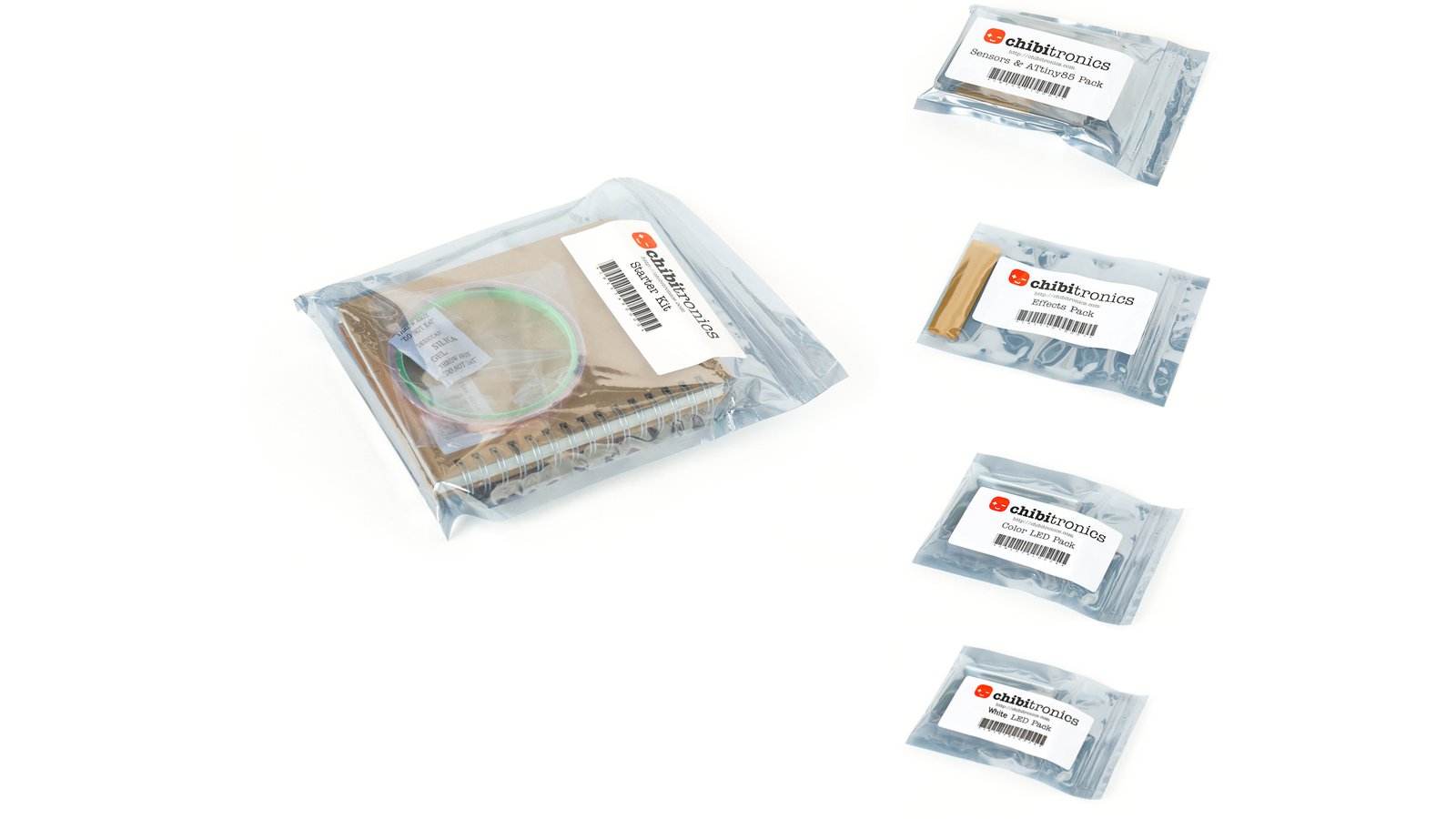
Want to buy this item? Check the current project page for the latest information.
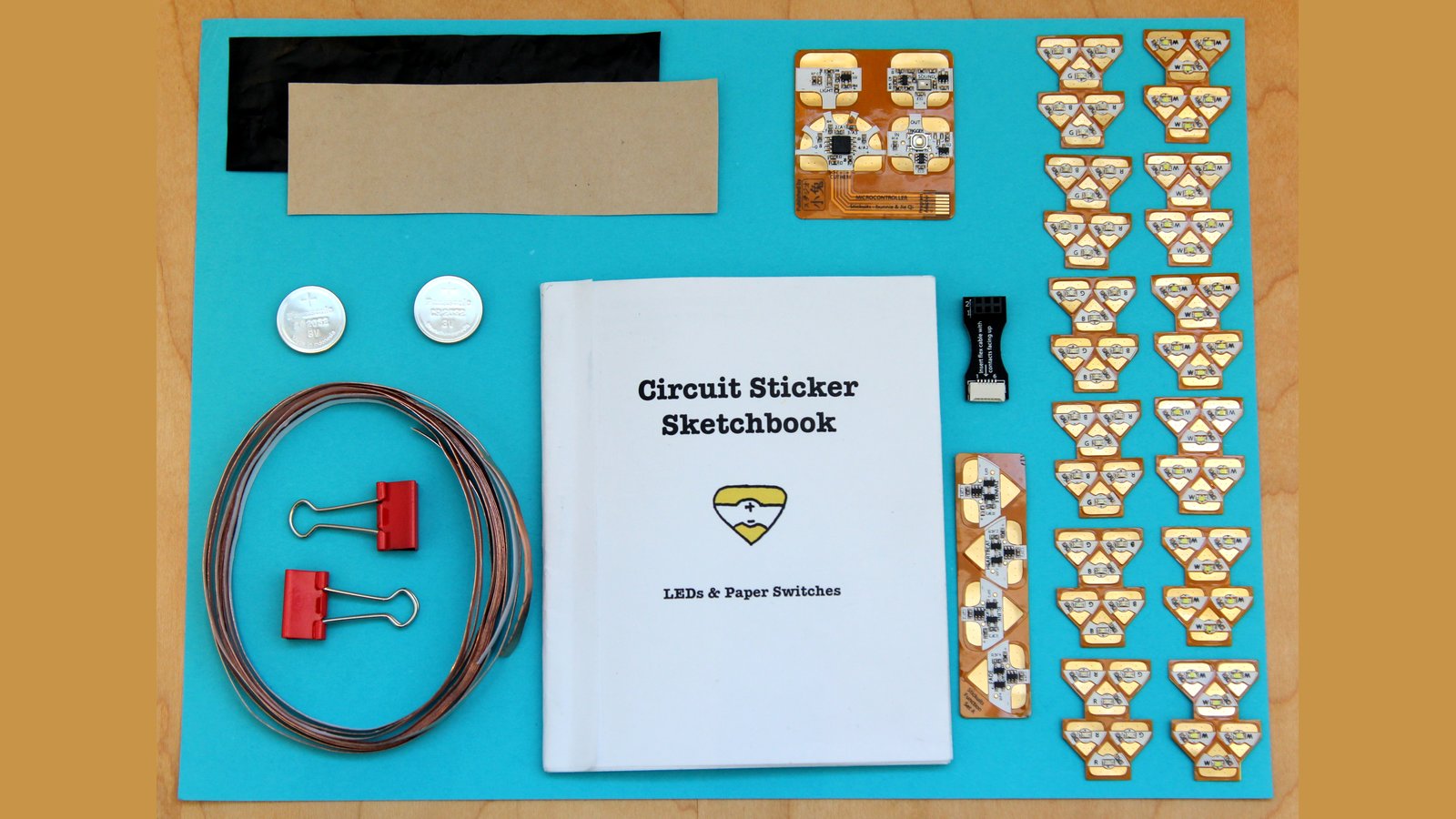
Want to buy this item? Check the current project page for the latest information.
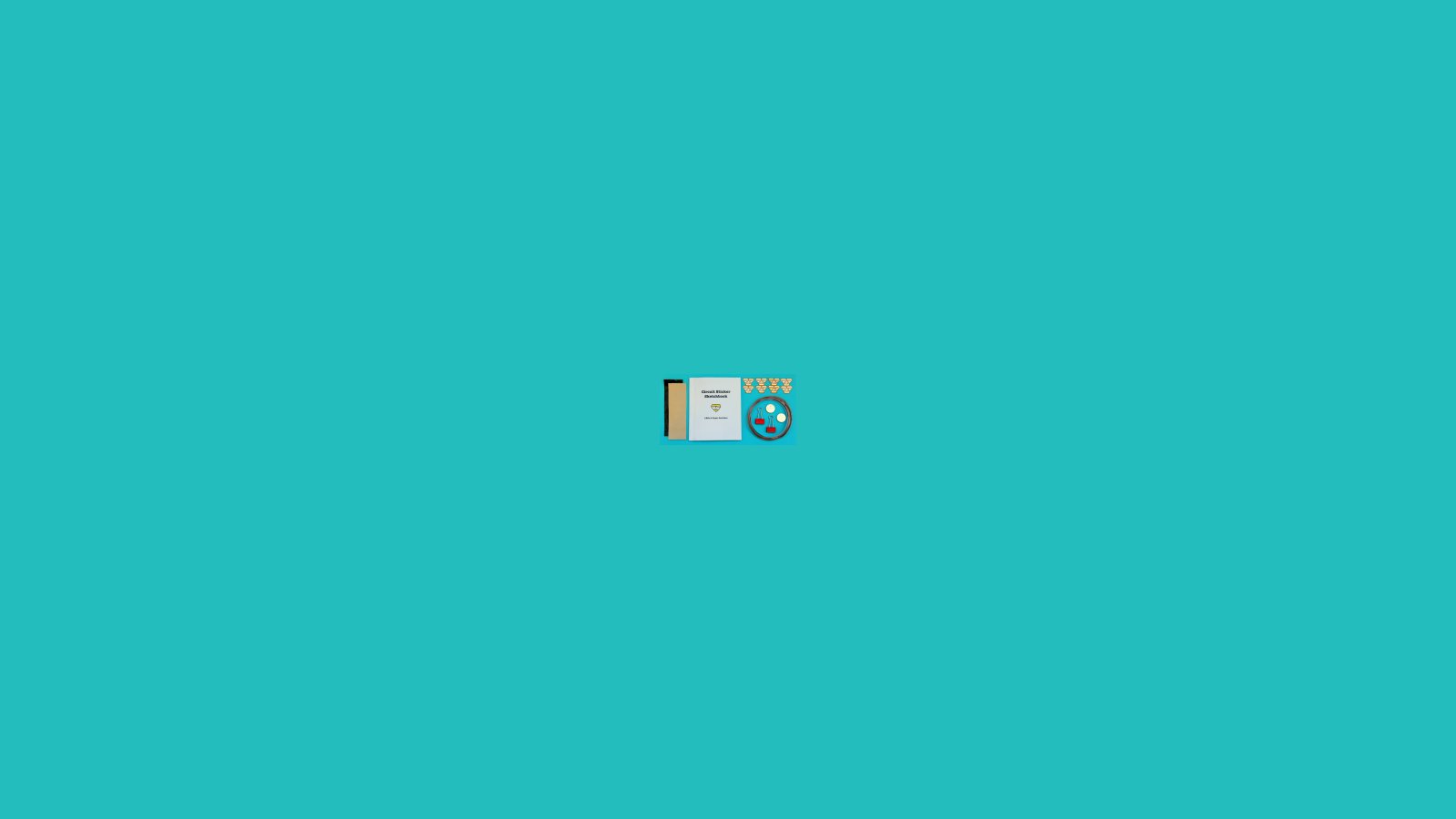
Want to buy this item? Check the current project page for the latest information.
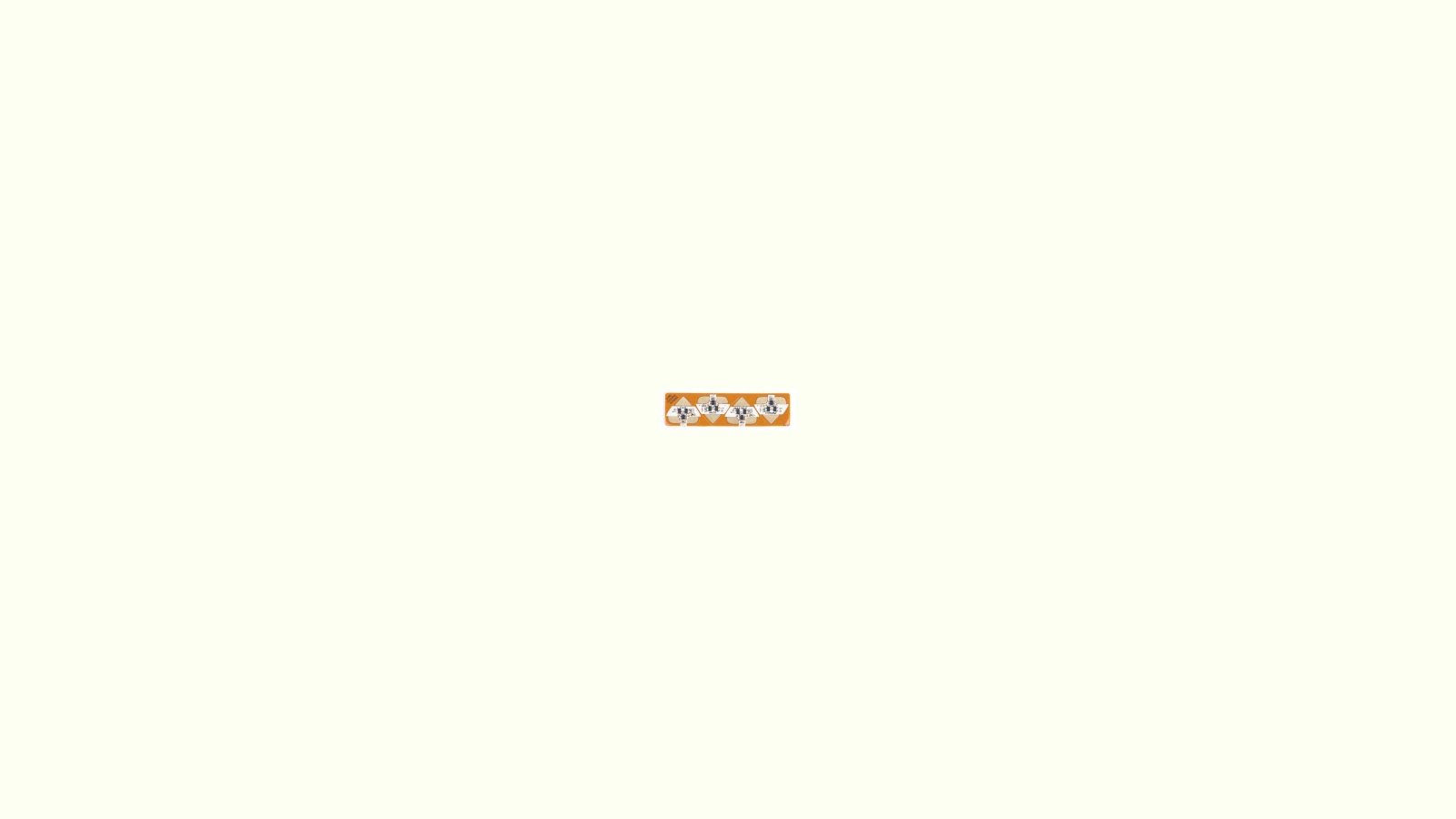
Want to buy this item? Check the current project page for the latest information.
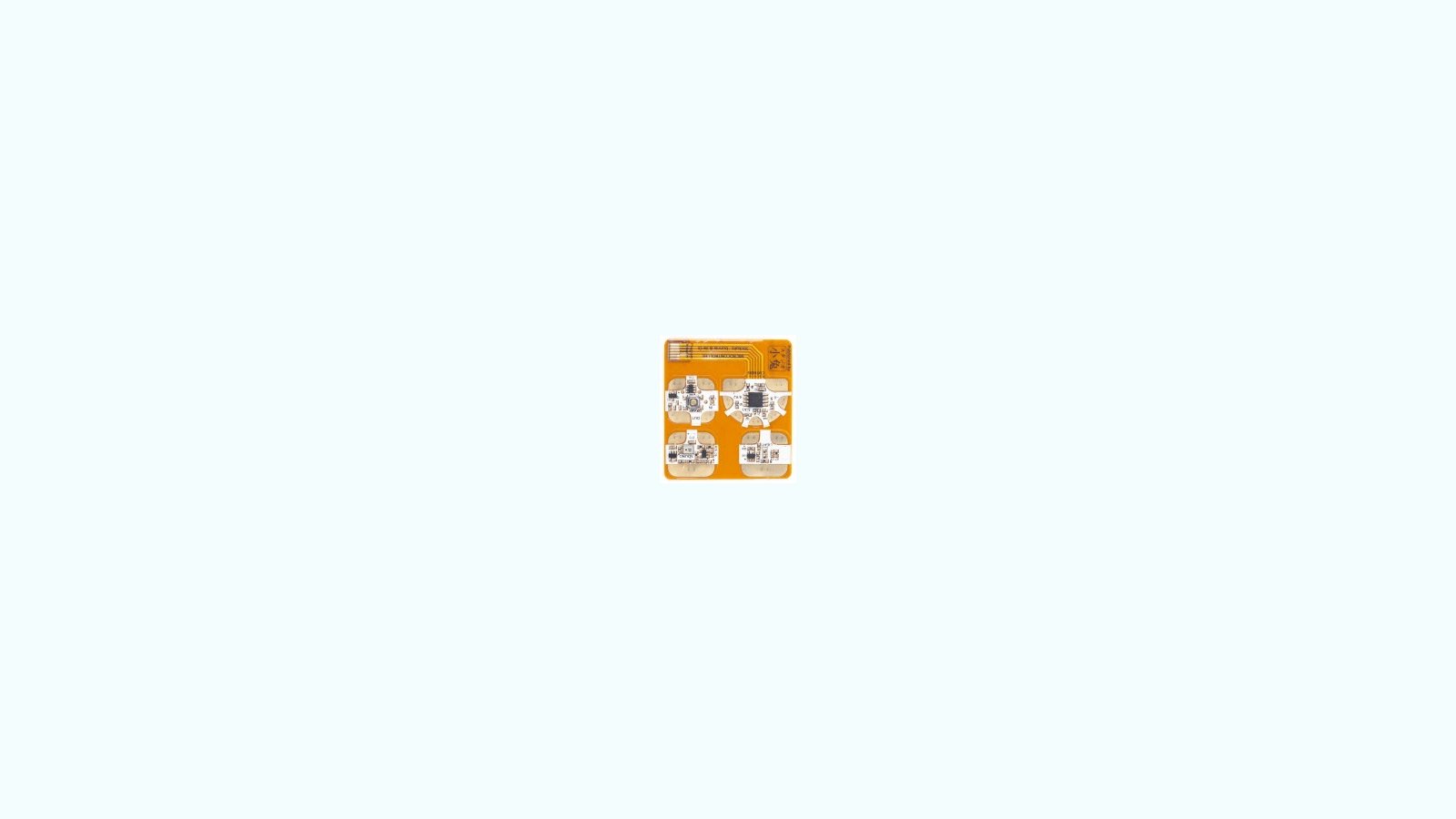
Want to buy this item? Check the current project page for the latest information.
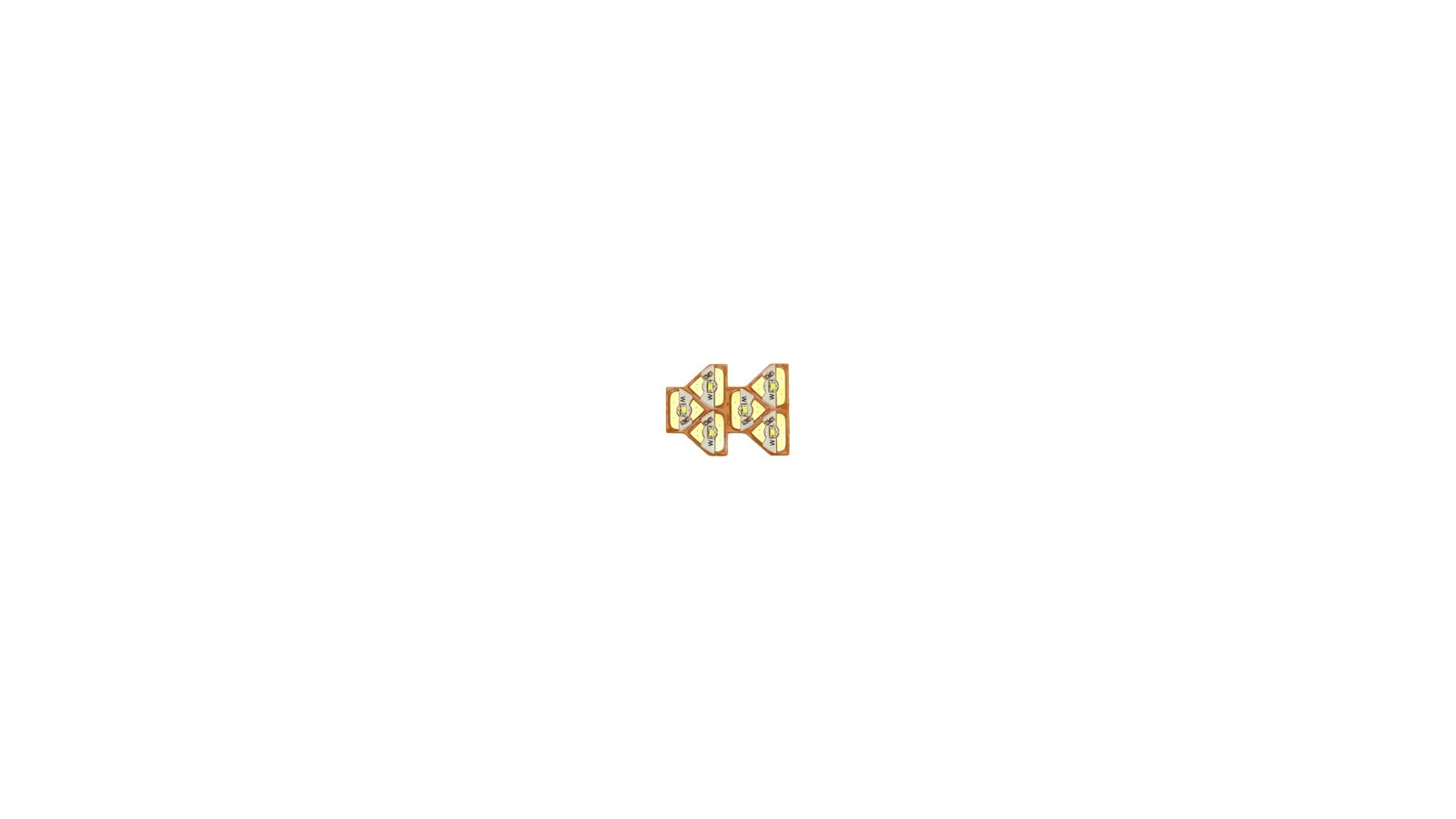
Want to buy this item? Check the current project page for the latest information.
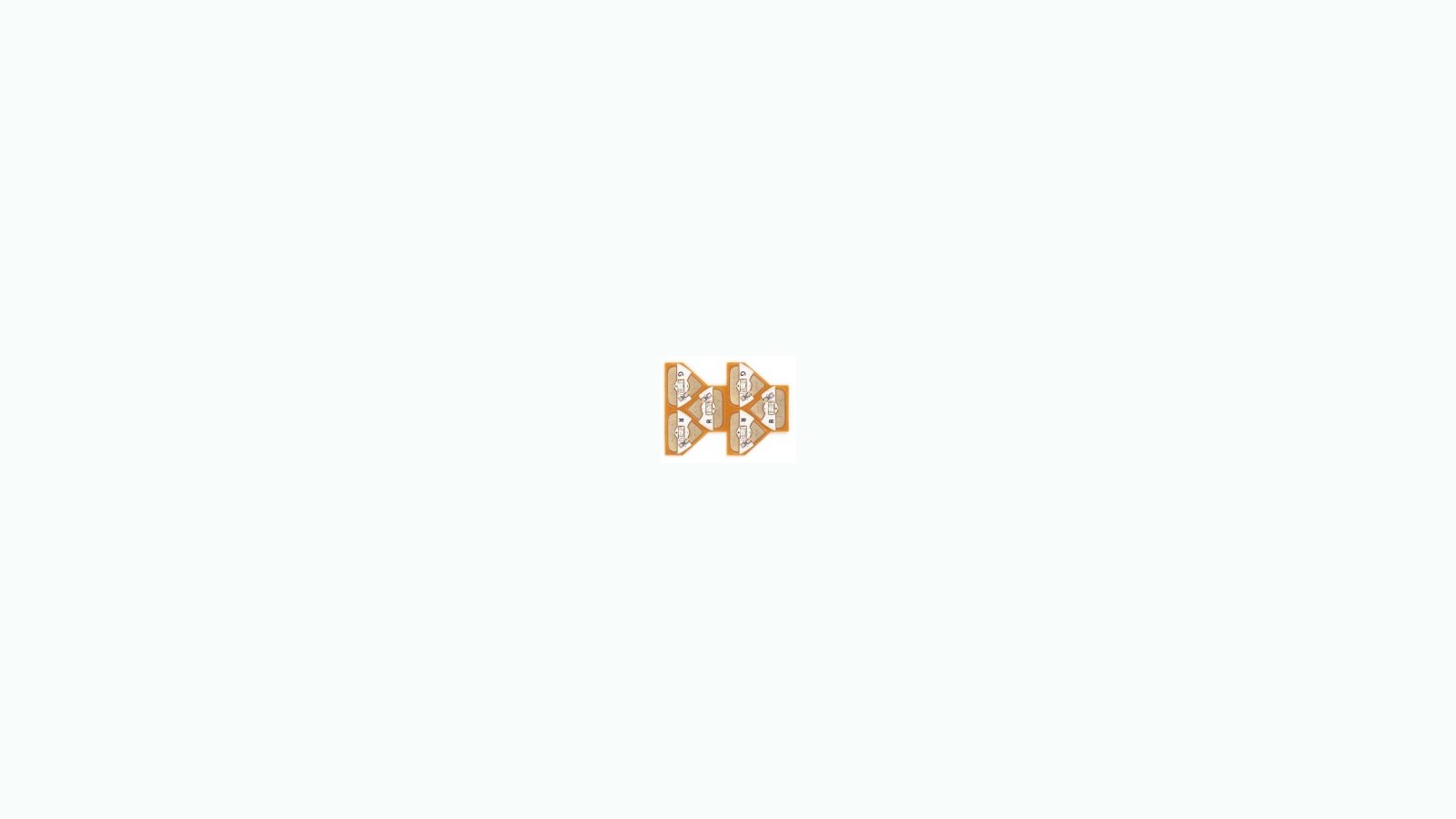
Want to buy this item? Check the current project page for the latest information.

Want to buy this item? Check the current project page for the latest information.
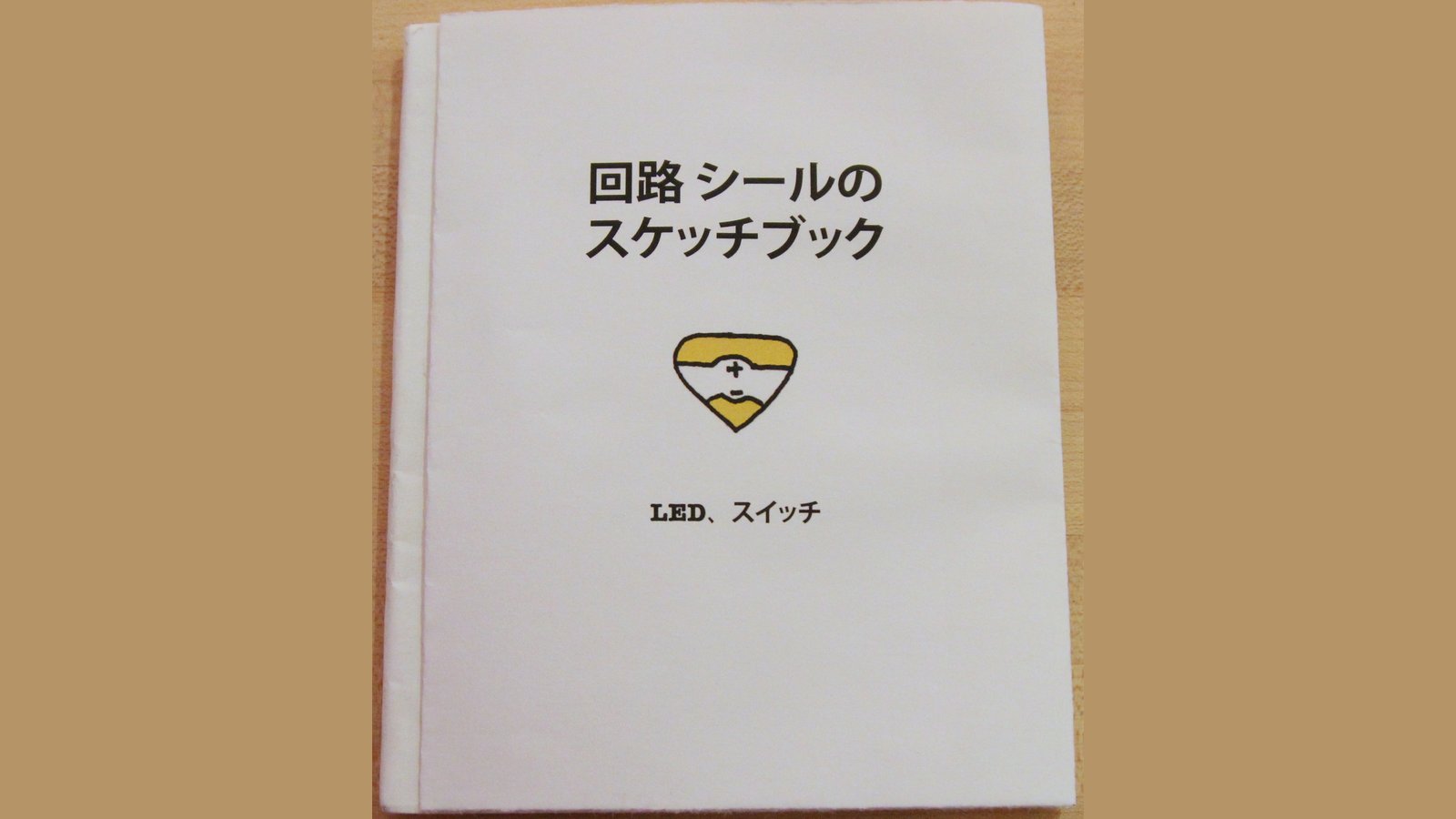
Want to buy this item? Check the current project page for the latest information.
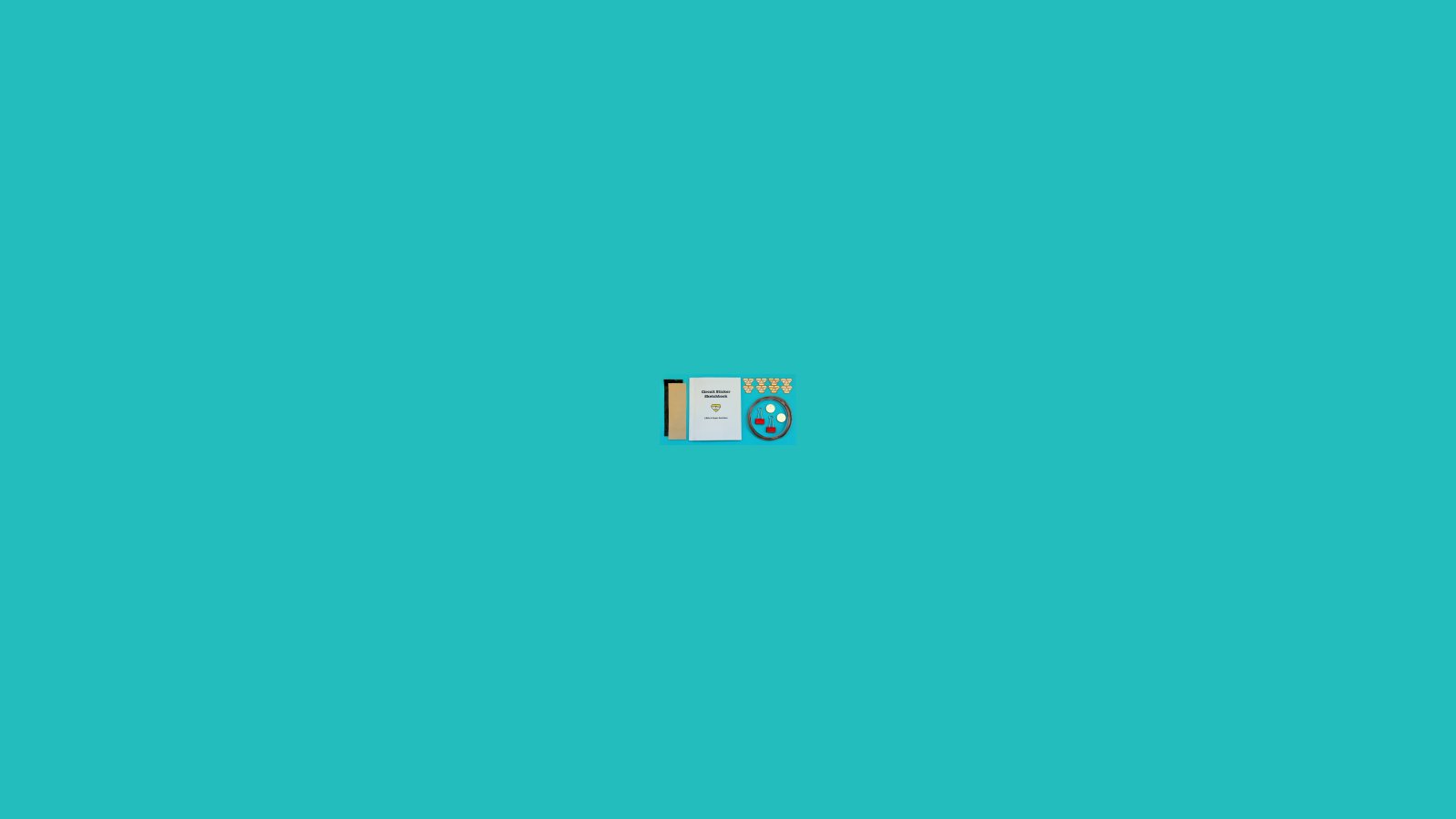
Want to buy this item? Check the current project page for the latest information.
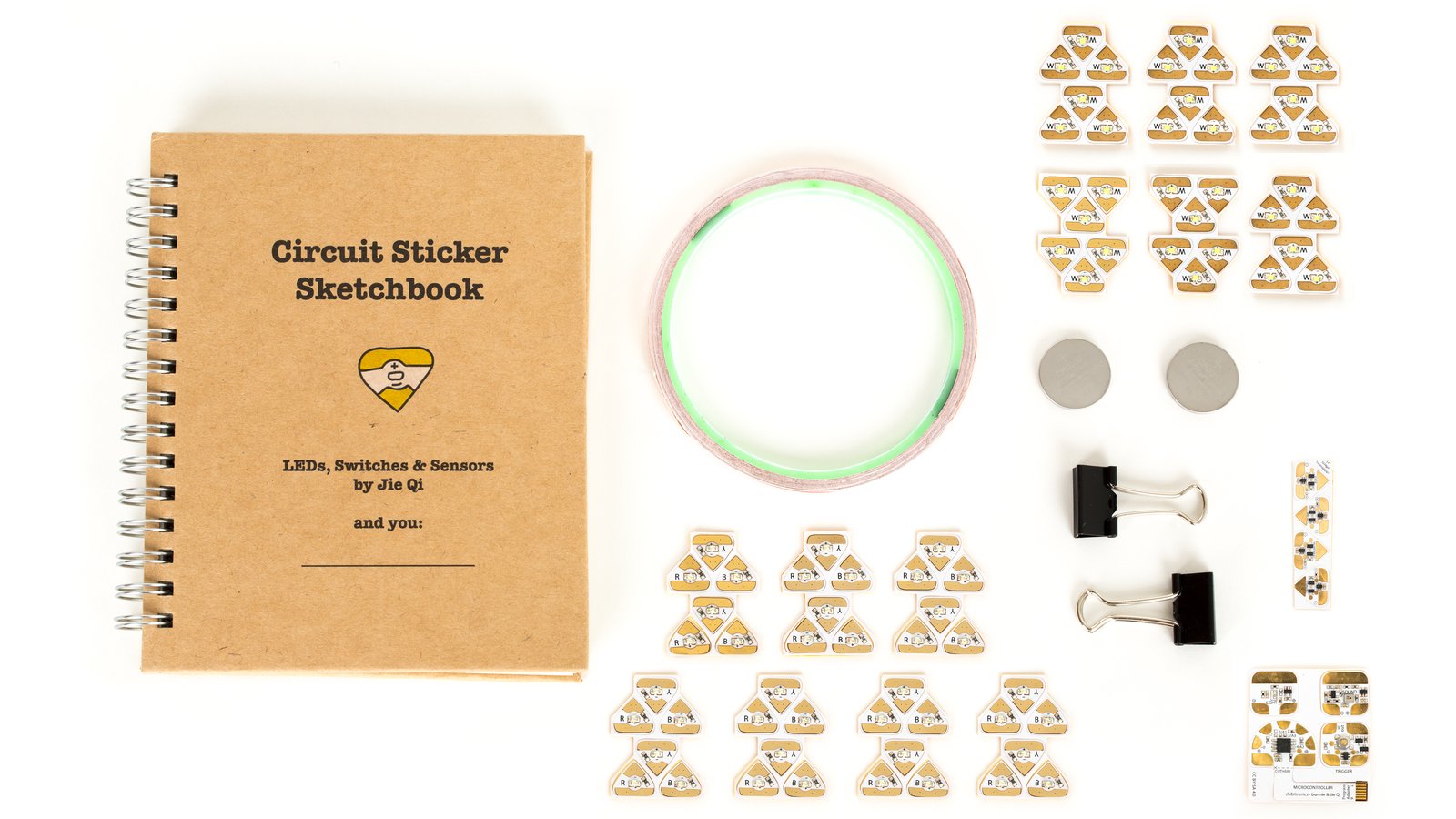
Want to buy this item? Check the current project page for the latest information.
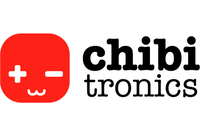
Singapore · chibitronics.com
Chibitronics is a research collaboration between Jie Qi from the MIT Media Lab and bunnie from Studio Kosagi.
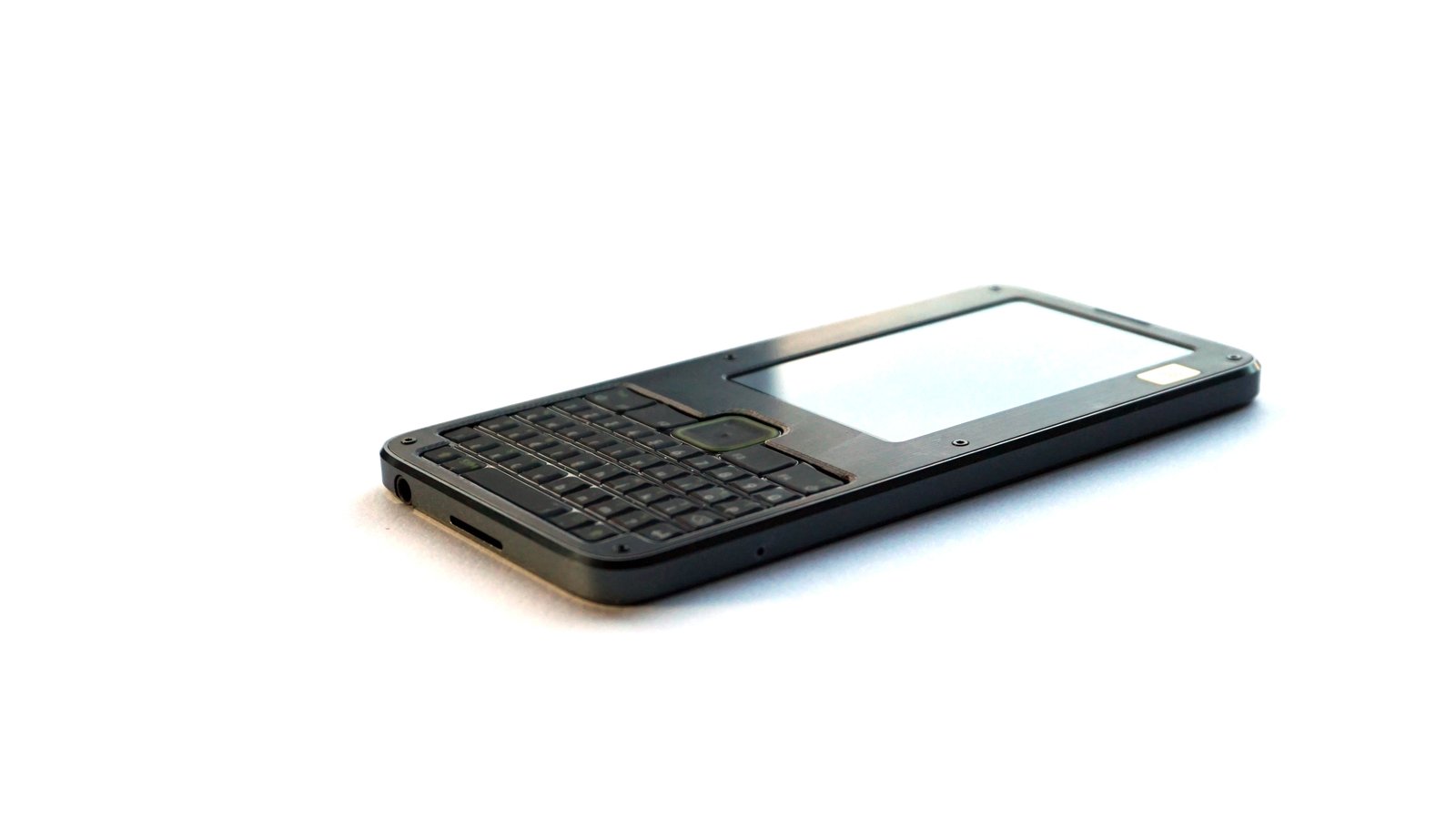
Mobile, Open Hardware, RISC-V System-on-Chip (SoC) Development Kit
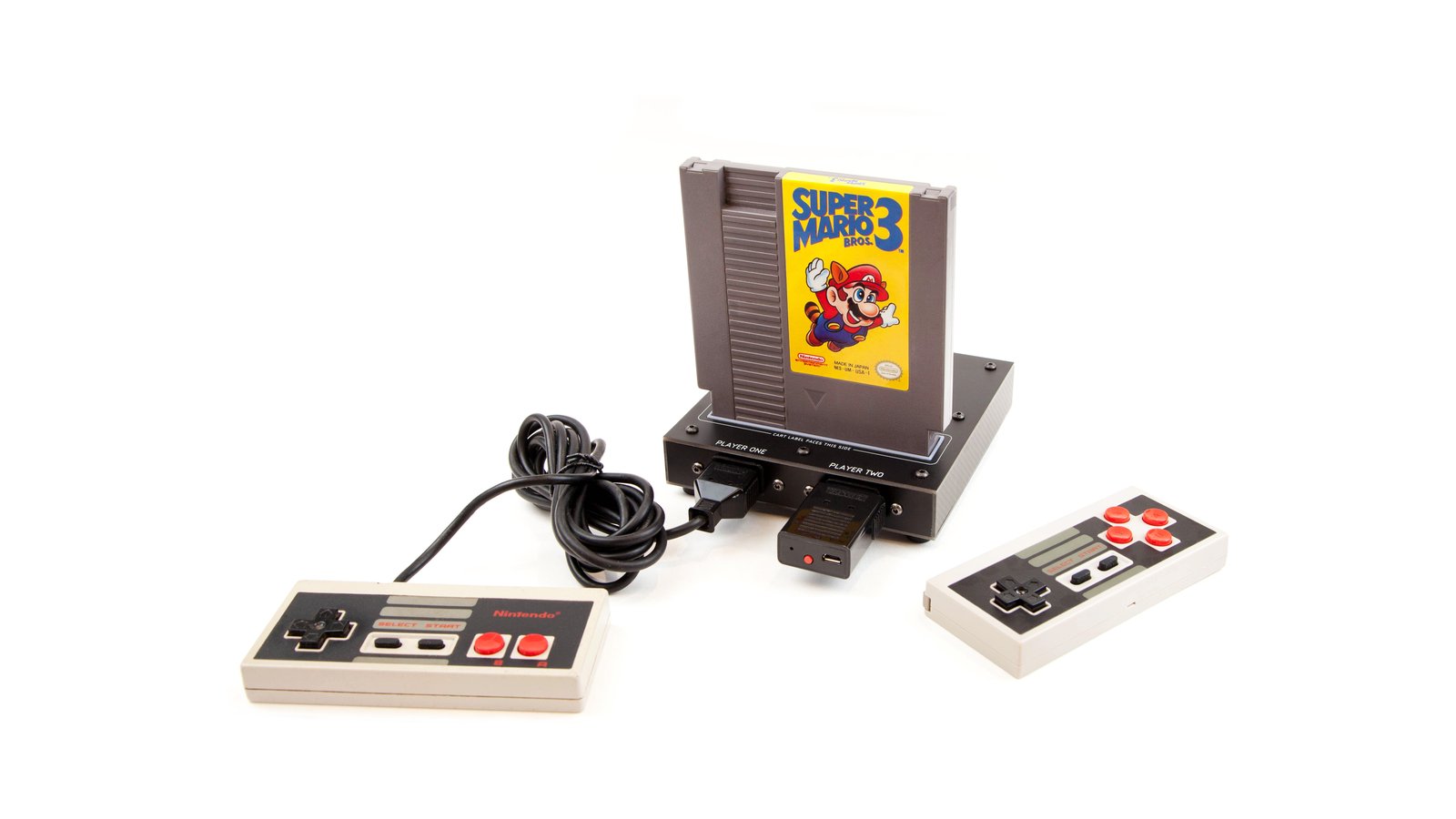
Classic NES games on open source hardware that fits in the palm of your hand
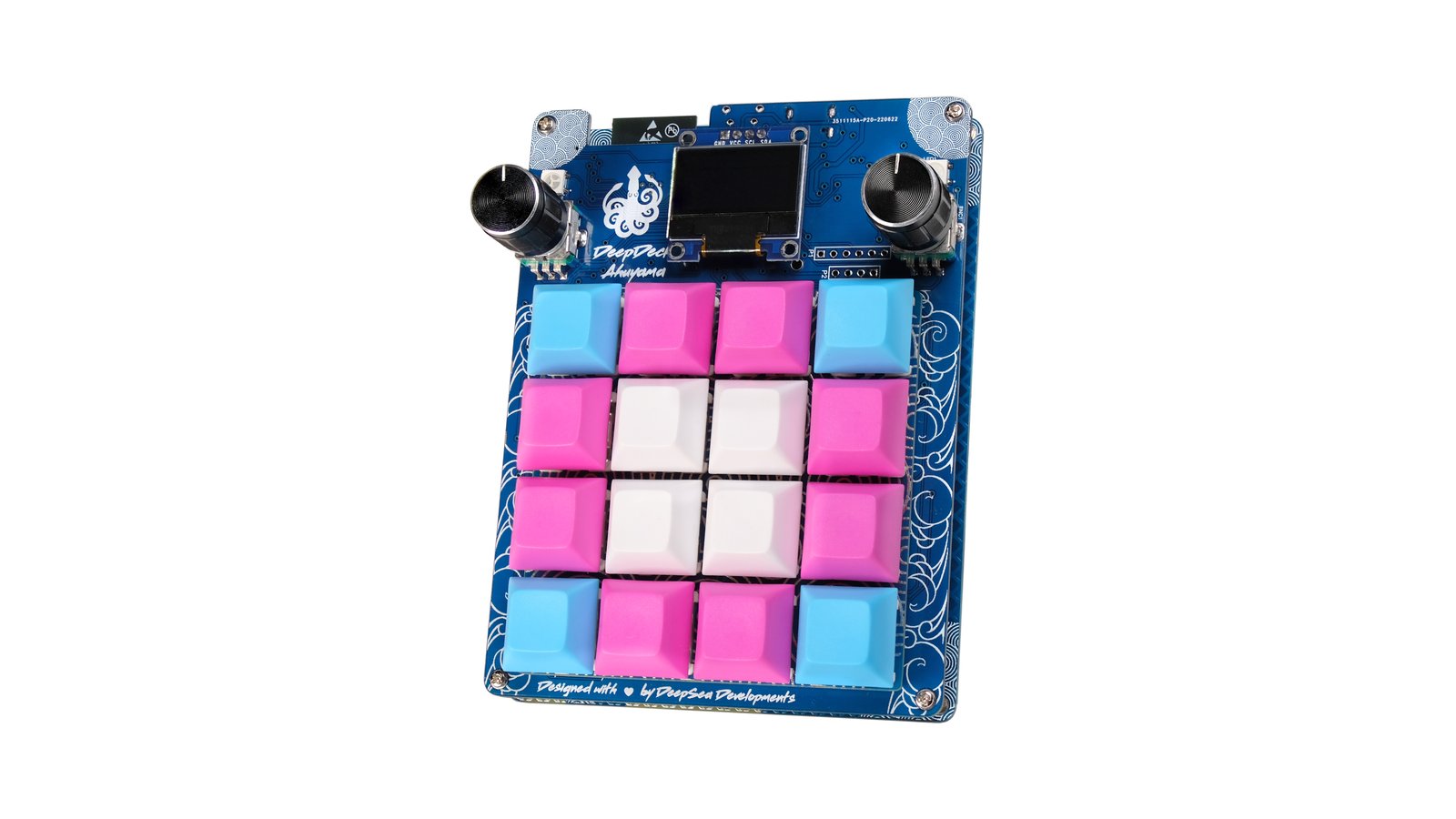
Wireless, fully programmable, open source, ESP32 macropad featuring 16 RGB, mechanical, hot-swappable keys and two RGB rotary encoders